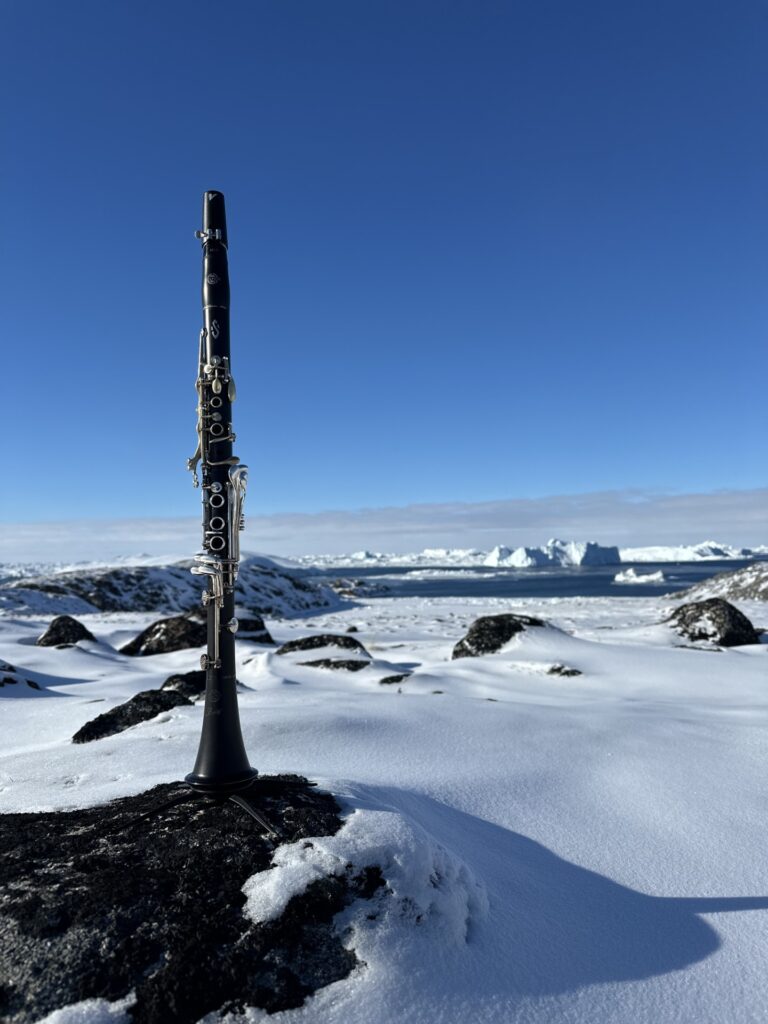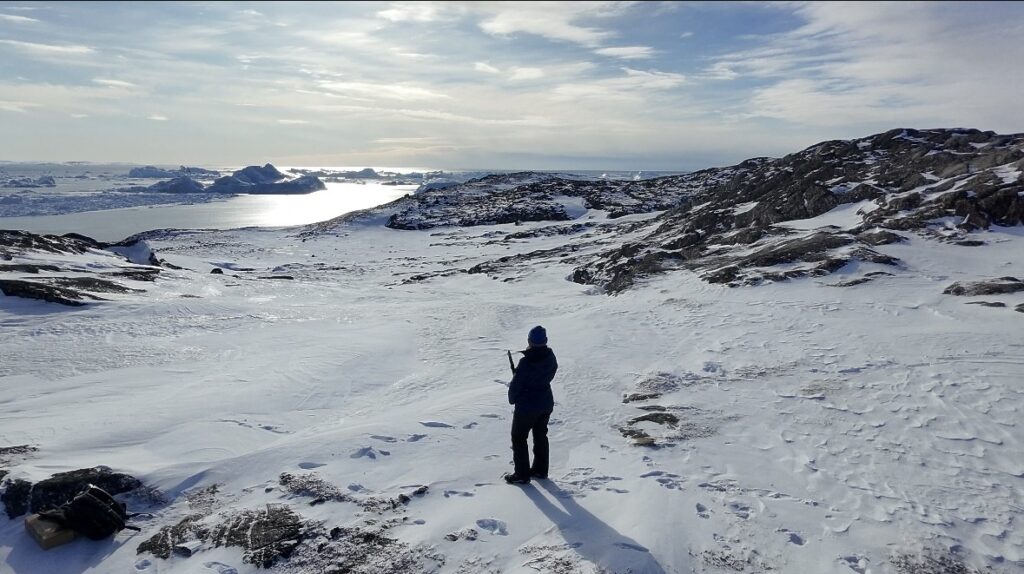New composition: Qivittoq for solo clarinet
I am honored to have spent one month in Ilulissat, Greenland as an artist-in-residence with Arctic Culture Lab during March/April 2025. Ilulissat and the icefjord were beautiful beyond belief, and the photos and videos I took don’t do it justice!
As part of my project researching Greenlandic music culture and history, I composed a piece for solo clarinet inspired by a Greenlandic tale. Today, I’m very excited to introduce the work I composed during this residency – Qivittoq for solo clarinet. (I’ll share more of my musical and cultural research in a future blog post.)
Greenland has many stories, myths, and legends, but as a lifelong horror fan, I was fascinated by the tale of the Qivittoq.
There are many versions and variations of this tale, and here is my summary:
- Qivittoq – singular
- Qivittut – plural
A Qivittoq is a person who leaves society (whether by choice or by force) to live in the Greenlandic wilderness. Community is essential to survival in the harsh Greenlandic environment, and living in isolation outside society is extremely dangerous. Some Greenlanders believe that Qivittut gain supernatural powers from living in the wilderness, and they are believed to wear animal furs and skins. Everyone I spoke to during my residency either claims to have seen a Qivittoq or personally knows someone who has. (There is even a Greenlandic film called Qaqqat Alanngui about encountering Qivittut. I was able to watch this with English subtitles on my Air Greenland flight into Nuuk.)
There are many variations of the Qivittoq tale, and one particularly chilling version was told to me by a local in Ilulissat:
(This is paraphrased from a verbal conversation)
There once was a man who got lost while hunting in the backcountry. Just as he was about to give up hope, he came across a hut. (Note: These huts/cabins do exist throughout Greenland for people to use.) He was exhausted but happy to have found shelter for the night. Before going to sleep, he noticed that there were portraits of shearling-wearing people on all the walls of the hut. He thought that was strange, but was too tired to investigate further.
In the morning, he got up to take a closer look…and realized they weren’t portraits at all.
They were windows.
Inspiration in the wilderness
The tales of Qivittut intrigued me, and I became even more captivated with the concept after exploring the Greenlandic wilderness. During my residency, I climbed mountains, explored the Ilulissat icefjord, snowmobiled near glaciers, kayaked through icy waters, and wandered through Greenland’s backcountry. Some of this was guided, but most was solo.
During these solo treks, I felt an overwhelming sense of solitude. There were several moments where there was nobody around for miles and miles, and I could experience Greenland’s desolate beauty all for myself. In the ambiguous darkness before sunset, it was easy to mistake rocks or distant landscapes for people. Could one of them be a Qivittoq? What would I do if I encountered one? Being surrounded by the vast Arctic abyss, I can easily understand the power and pull of the Qivittoq.
I think there’s something universal about the idea of escaping society. At some point in most of our lives, I’m sure we’ve daydreamed about leaving the hustle and bustle of society for a quieter life somewhere in nature. I’ve definitely thought about this, but imagined an idyllic cottage in a forest – not Greenland’s unforgiving backcountry!
Qivittoq for solo clarinet
The tale of the Qivittoq, the compelling urge to abandon society for a life in the wilderness, was the inspiration for my solo piece for clarinet. It’s divided into two larger sections: society and wilderness, with the performer embodying the titular Qivittoq.
The frenetic movement of the first section represents the energy and activity of society, although there are moments of “wilderness” represented by multiphonics and timbre trills. The technical activity fades as the Qivittoq leaves society for the wilderness, and the music becomes more introspective and primal. This section features more extended techniques, showcasing the “special powers” to be gained in the wilderness.
The ending is deliberately ambiguous. Does the Qivittoq return to society? Or do they embrace their newfound life in nature? I choose to leave this to the listener’s interpretation.
Final remarks
My time in Greenland was unforgettable, and I continue to feel inspired by the people, the land, and the stories I encountered. I’m excited to share more about my research and music in upcoming posts, and I hope this piece is just the beginning of a lifelong connection with Greenland.
Qujanaq / Thank you again to Arctic Culture Lab for supporting this project.

